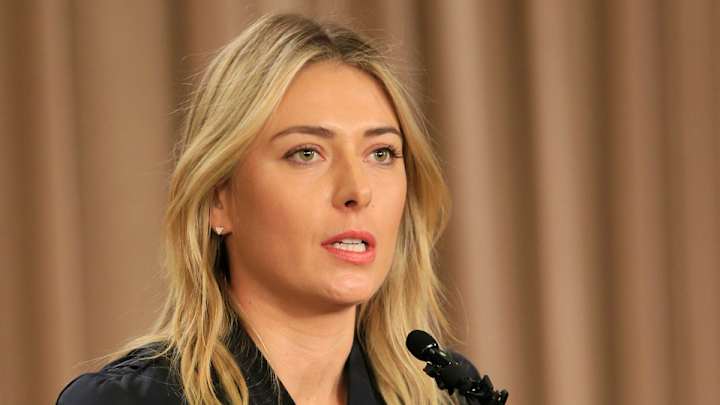Sharapova could be affected by WADA potential reprieve on meldonium

Get breaking news and SI’s biggest stories instantly. Download the new Sports Illustrated app (iOS or Android) and personalize your experience by following your favorite teams and SI writers.
The World Anti-Doping Agency (WADA) announced Wednesday that some athletes may have their bans reversed if they tested positive for meldonium during a certain time frame.
After officially banning the drug on Jan. 1, WADA has recently conducted studies to test how long meldonium stays in the system before it is eliminated, and has determined the drug could stay in the body for months after use.
The organization released a statement addressing the issue of athletes that could have stopped taking the drug before the ban was put in place, but still tested positive later.
“If the anti-doping organization finds that the athlete could not reasonably have known or suspected that the substance would still be present in his/her body on or after 1 January 2016, then a finding of no fault or negligence may be made. In the case of meldonium, there is currently a lack of clear scientific information on excretion times. For this reason, a hearing panel might justifiably find… that an athlete who has established, on the balance of probabilities, that he or she ingested meldonium before 1 January 2016, could not reasonably have known or suspected the meldonium would still be present in his or her body on or after 1 January 2016. In these circumstances, WADA considers there may be grounds for no fault or negligence on the part of the athlete.”
Sharapova was given a preliminary ban from tennis after she admitted to using meldonium and failing to read WADA’s updated list of banned drugs.
• What is Meldonium? The drug behind Maria Sharapova’s positive test
On Wednesday, John Haggerty, Maria Sharapova’s attorney, released a statement questioning WADA’s handling of meldonium.
“The fact that WADA felt compelled to issue this unusual statement now is proof of how poorly they handled issues relating to Meldonium in 2015. Given the fact that scores of athletes have tested positive for taking what previously was a legal product, it’s clear WADA did not handle this properly last year and they’re trying to make up for it now.
The notice underscores why so many legitimate questions have been raised concerning WADA's process in banning Meldonium as well as the manner in which they notified players. This notice should have been widely distributed in 2015, when it would have made a difference in the lives of many athletes."
The president of the Russian tennis federation said in March that Sharapova could have her disciplinary hearing in June.
